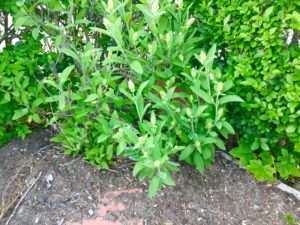But on the first day of the week, at early dawn, they came to the tomb, taking spices that they had prepared. They found the stone rolled away from the tomb, but when they went in, they did not find the body. While they were perplexed about this, suddenly two men in dazzling clothes stood beside them. The women were terrified and bowed their faces to the ground, but the men said to them, “Why do you look for the living among the dead?” Luke 24:1-5a, NRSV
When you were a child, did you ever run into your teacher somewhere unexpected- the market, a fall fair, gas station, or restaurant? If you are like me, it made you feel really uncomfortable. Teachers are supposed to be in school, not picking out cold medicine and birthday cards at the drugstore in downtown Farmington, New Hampshire. That teachers have a life beyond their roles in the classroom, that they might be living and breathing people just like me – what a strange thought! That they might not live in the limited, school-shaped box I assumed they did was a shocking idea: that meant they were more than what I knew of them and how I experienced them.
The disciples who loved Jesus, who followed him and put their hopes in him, had expected to find Jesus in a tomb-shaped box among the dead. When he wasn’t confined to their limited understanding of him, when he wasn’t where they placed him in the grand scheme of things, it must have been the shock of a lifetime.
I hope I learn this lesson well enough to stop putting God in a box of specific shape and size – no matter how lovely the box, it won’t be big enough to contain the creator of the whole universe. Even church-shaped, denominationally decorated boxes will not contain a living Christ.
[The Deer’s Cry, Rita Connolly, from Shaun Davey, The Pilgrim, released 1983, recorded at Festival Interceltique de Loriant, Glasgow royal concert hall, Tara Music]







